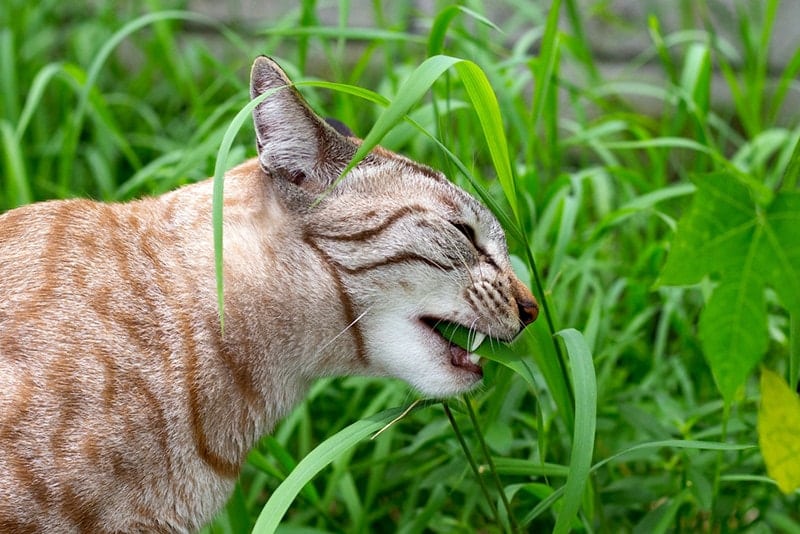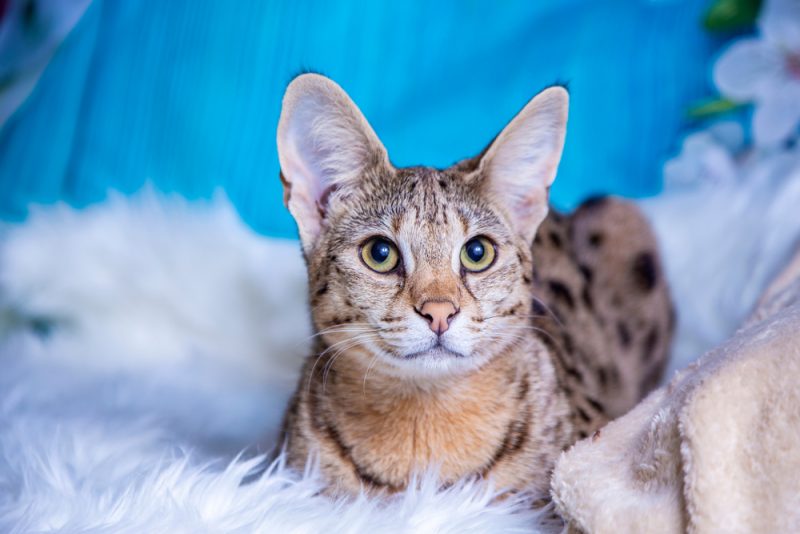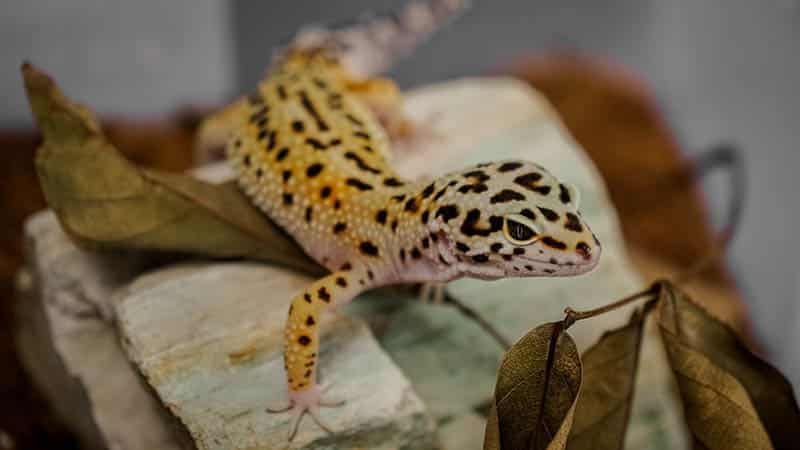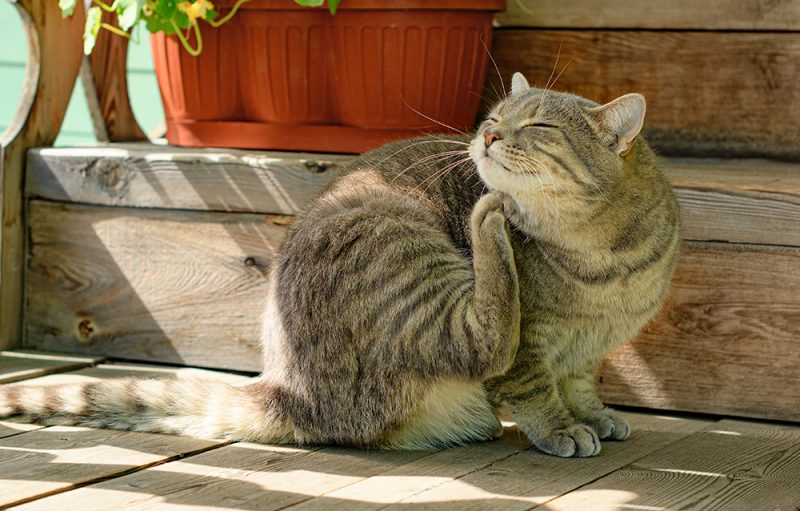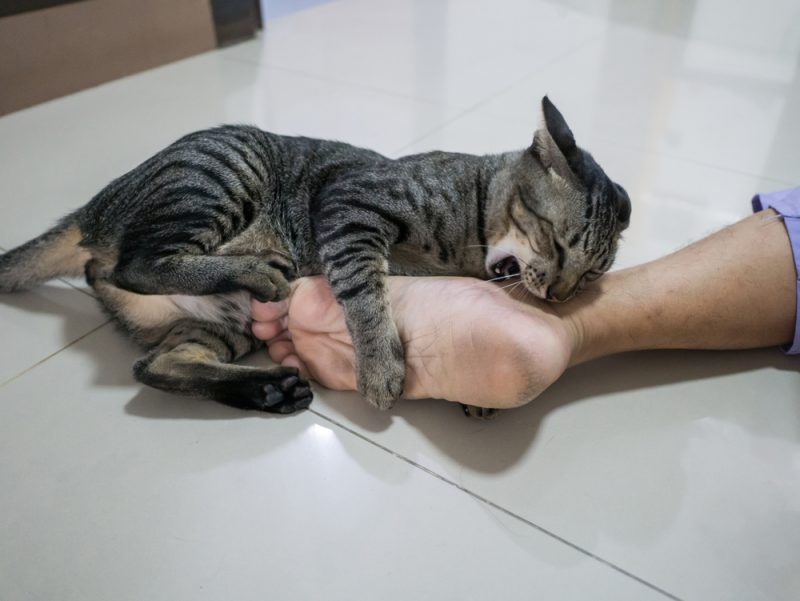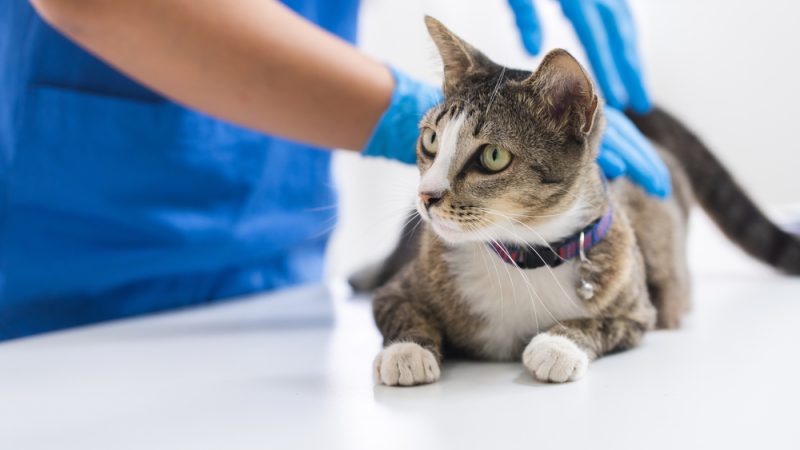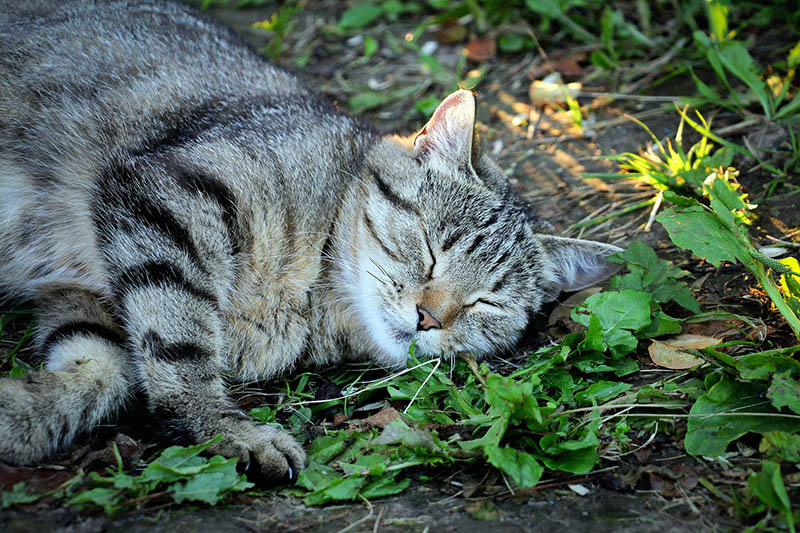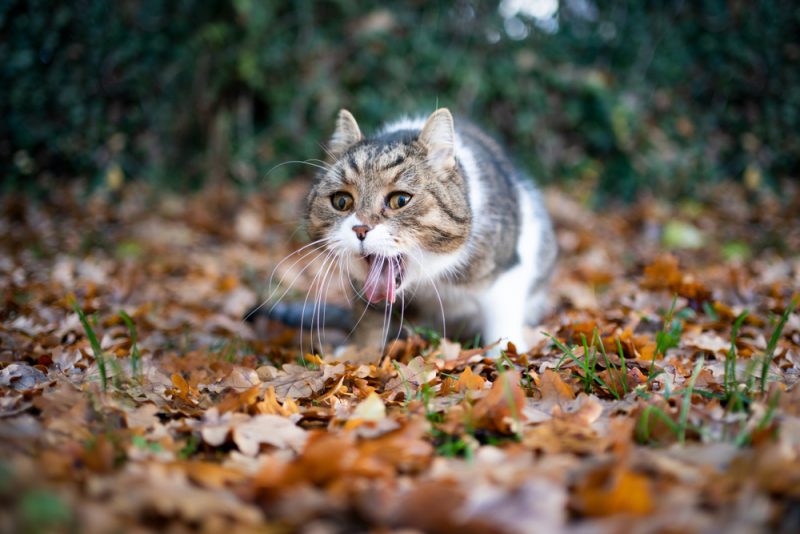In this article
View 2 More +In school, we always laughed when we would go through what are called differential diagnosis, and “plant awn” would show up on the list. We would think to ourselves, how on earth does a pet end up with grass or some type of plant piece stuck in the nose and/or throat? But this scenario is not as rare as we all thought! I’ve seen numerous animals with grass stuck in their nose and throat.
While we see this problem most often in outdoor-only and indoor/outdoor cats, we can also see this in indoor-only cats. Many people have plants in their house or even purchase cat grass that their cats will eat. Any of these scenarios will pose a risk of cats getting grass stuck in their throat.
I’d like to take this chance to clarify that when I refer to the word “throat” in this article, I am referring to the oropharynx and/or the esophagus. I am not referring to the trachea, or windpipe. Something stuck within your cat’s airway (the trachea) would pose a much greater risk to their health and present in different ways. In this article we’ll discuss what to do if you think or know your cat has a piece of grass stuck in their throat.

Signs of Grass Stuck in Cat’s Throat
If your cat has grass stuck in their throat, what you may notice at first is sneezing. Often these grass pieces will be sniffed up into the nasal cavity as your cat is either eating grass or checking out some good smells outside. Your cat may start to excessively sneeze, sometimes having some discharge out of one of the nostrils. Your cat may even paw at the nostril that seems irritated.
Other abnormal signs you may notice is constant gagging and/or retching in addition to your cat rapidly opening and closing the mouth while pawing at it. Your cat may be able to eat and drink normally, but will constantly gag before and/or after, or gag when not eating and drinking.
Your cat should not have an uncomfortable abdomen, difficulty walking, or even lethargy from a simple piece of grass stuck in the throat. They should also not have any coughing or difficulty breathing. If you notice any of these signs, there may be something else going on besides grass being stuck in the throat.
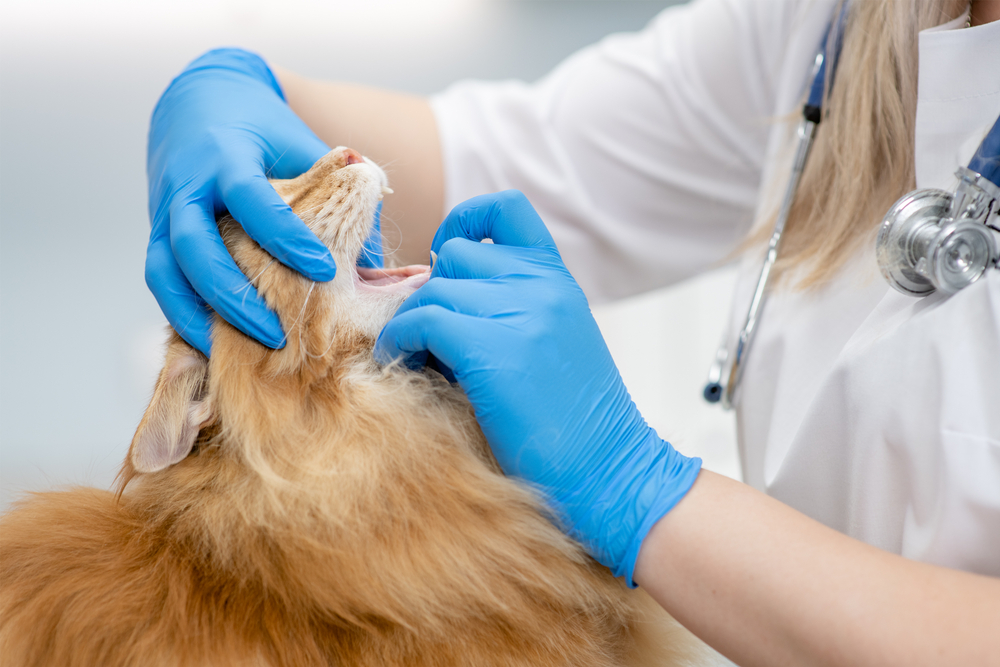
What Else Could It Be?
Many times, gagging and coughing in cats can sound and appear very similar, so it may not be actually due to having grass stuck in their throat. As veterinarians we often hear that people think their cat is trying to gag up a hairball, when in reality they are coughing. Coughing in a cat is often a sign of a serious underlying problem. We can see coughing due to underlying heart disease, asthma, pneumonia, cancer, or infectious agents. All of these will have vastly different treatment plans from one another, and so a correct diagnosis is imperative to helping your cat.
If your cat is truly gagging and not coughing, we can also see this from nausea and other upper GI tract diseases. The upper GI tract consists of the mouth, back of the throat (oropharynx), the esophagus, stomach, and uppermost part of the intestines. There are some medications that can actually cause scarring down the esophagus, making it difficult for your cat to swallow. Other times cats may have an ulcer within the intestinal tract, and this we can see from many different causes. If your cat is suffering from nausea, the possibilities are endless as to the cause, and a thorough history, exam, and work-up should be completed by your veterinarian.
What Can I Do at Home?
Again, assuming your cat is gagging and retching, not actively vomiting or coughing, there are a few simple things you can do if you think your cat has grass stuck in their throat or is otherwise gagging. First, take away food and water for a few hours and monitor if your cat is still acting the same. It’s important to know and also tell your veterinarian if your cat is gagging all of the time, or only when eating, drinking, and swallowing.
Second, offer your cat a very small amount of water and food, and monitor their actions. Same as above, this will help your vet determine what the behavior may be due to. It’s important that when you do these things, your cat is also kept inside and closely monitored. Allowing your cat access to the outdoors, or into another cat’s food and water will make diagnosis difficult.
If your cat is able to eat and drink small amounts and keep it down, and is also defecating normally, you can try to offer your cat a small amount of high-fiber food. There are some good dietary options out there, but in general, offer a small amount of food with a fiber content bigger than their regular diet. The hope is that the additional fiber may help to grab onto the grass piece and allow your cat to swallow it down normally.
Whatever you do, do not ever force food, water, oil, or other materials into your cat’s mouth. Your cat can very easily choke and/or aspirate if they are stressed. Also, we don’t recommend trying to reach into your cat’s mouth or throat to “grab” anything out. You may get bit, it will stress your cat out, and you may seriously hurt your cat by attempting this.

Should I Take My Cat to the Vet?
If you’ve monitored your cat and can say with certainty that they are gagging and/or retching due to grass being stuck in their throat or another undetermined reason, and the behavior has persisted despite trying the above, then it’s time to make a veterinarian appointment. Depending on the history of your cat – when the behavior started, do they go outside, do they have access to cat grass, etc. – will help your veterinarian determine a diagnostic and treatment plan.
Do not be surprised if your veterinarian wants to take radiographs of your cat’s chest and neck first. While a piece of grass will not show up on an x-ray, this is because as discussed earlier, coughing and gagging/retching often appear very similar. Your veterinarian will want to make sure that the lungs appear normal.
After that, your veterinarian will likely want to sedate your cat and do a complete exam of their nose, mouth, and the back of the throat. I have been involved in cases where once sedated, the grass is visualized and gently pulled out. The cat wakes up and goes along their merry way!
If your cat was doing this behavior and you followed our recommendations above for what to do at home, and the behavior stops, take note of when this occurred and monitor your cat. Always mark in a calendar everything you can think of surrounding this occurrence in case it happens again.
If you need to speak with a vet but can't get to one, head over to PangoVet. It's an online service where you can talk to a vet online and get the advice you need for your pet — all at an affordable price!


Conclusion
While cats getting grass stuck in their throat may sound silly, it is a phenomenon that we see. Often this occurs in indoor/outdoor cats, or outdoor-only cats. However, we can see this happen with indoor-only cats who may have cat grass or access to plants. You may notice your cat sneezing at first, that then progresses to gagging, retching, or opening and closing their mouth while pawing. It’s important to distinguish this behavior from coughing, vomiting, and nausea, all of which have different causes. If the behavior persists despite your cat otherwise acting and eating normal, then you should take them to the veterinarian for evaluation. Your veterinarian will determine how to move forward to try and locate the grass piece (if present), and make sure there is nothing else going on with your cat.
Featured Image Credit: Bowonpat Sakaew, Shutterstock
